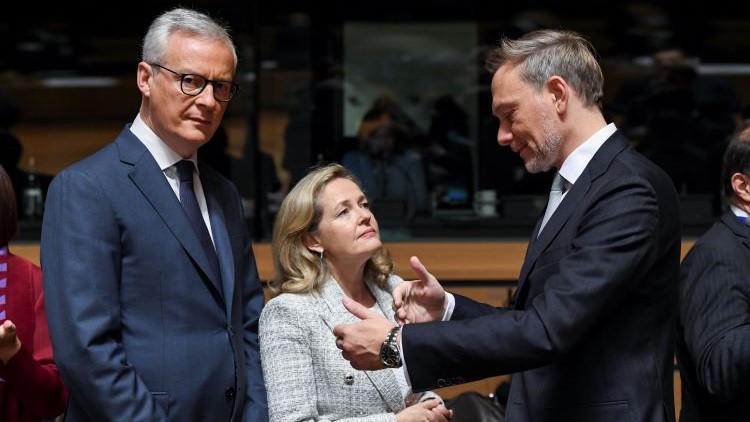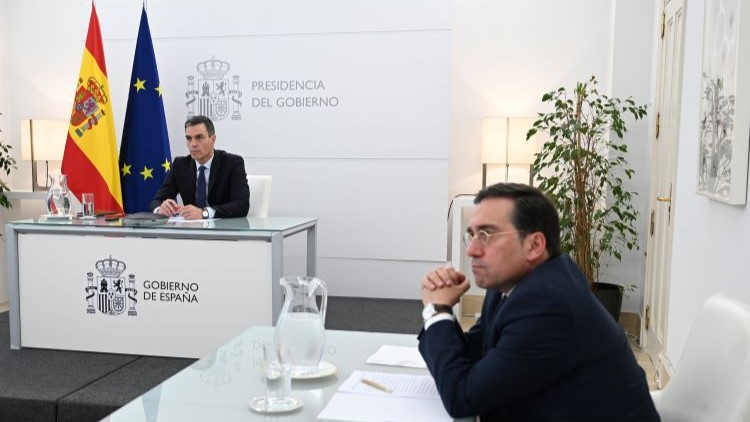Eduardo González
The Economic and Financial Affairs Council concluded yesterday without an agreement on the relaxation of the fiscal discipline rules of the European Union or on the presidency of the European Investment Bank (EIB), the two great aspirations of the first vice president and Minister of Foreign Affairs Acting Economics, Nadia Calviño, at this meeting in Luxembourg.
The Ministers of Economy and Finance of the 27 EU States limited themselves to taking stock of “the progress made in the review of the economic governance framework” and to underlining “the need to continue discussions at both technical and political levels.” The EU economic governance framework is a set of common rules for national fiscal and economic policies that apply to all Member States. They serve to ensure the sustainability of public finances and promote convergence, while addressing macroeconomic imbalances.
The Ecofin meeting therefore concluded without an agreement on the Spanish proposal to relax the European Union’s fiscal discipline rules before the end of the year. In 2024, the four-year suspension of fiscal rules ends, which will imply the recovery of the Stability and Growth Pact, which sets the reduction of the deficit and public debt of the States at 3% and 60% of the Domestic Product Gross (GDP), respectively.
The objective of Spain, France and Italy is for the rules to be more flexible and more adapted to the situation of each country in order to avoid the systematic non-compliance that occurred with the previous framework. To do this, they will have to convince Germany, the current leader of the “frugal” countries, which defends strict rules regarding deficits and public debt. Therefore, everything depends on the two giants of the EU, France and Germany, agreeing, which was not possible yesterday.
“We are working tirelessly and with a spirit of consensus to reach a balanced agreement before the end of the year,” declared Calviño at the press conference after Ecofin. “Our ambitions are high, but so is what is at stake: the strengthening of our Economic and Monetary Union, and a path of sustainable growth and budgetary responsibility that allows us to face our present and future challenges together,” she added.
For this reason, she explained, the Spanish Presidency will try to multiply technical and political contacts, over the coming weeks, in order to seek a consensus that will allow the adoption of new rules that guarantee, at the same time, a sustainable reduction of the debt and investment, growth and job creation in Europe. The Spanish Presidency plans to present a first legislative draft for the next Ecofin meeting, which will take place on November 9, but at the moment no date has been set for the agreement on the new rules, which must subsequently be approved by the European Parliament.
EIB Presidency
On the other hand, the appointment of the person who, on January 1, will replace the German Werner Hoyer as president of the European Investment Bank (EIB) was not discussed yesterday in Luxembourg (in fact, it was not even on the agenda). Nadia Calviño continues to be among the favorites to get the position, and even she herself declared on Monday that she had “strong support”, without further details, but to do so she will have to overcome a rival as tough as the Vice President and European Commissioner for Competition, the Danish Margrethe Vestager, who recently requested a temporary leave of absence from the European Commission to focus on her candidacy.
To obtain the presidency of the EIB, the support of 68% of the bank’s capital and at least 18 Member States is required. Given that the participation of each Member State depends on its economic weight in the EU in terms of GDP, to obtain the position it is essential to have the support of the three great economic powers of Europe and main shareholders of the bank, based in Luxembourg: Germany, France and Italy. France has not yet decided and in Germany there are even internal divisions, since the chancellor, Olaf Sholz, seems to support Calviño but her Finance Minister, the liberal Christian Lindner, prefers the also liberal Vestager.







